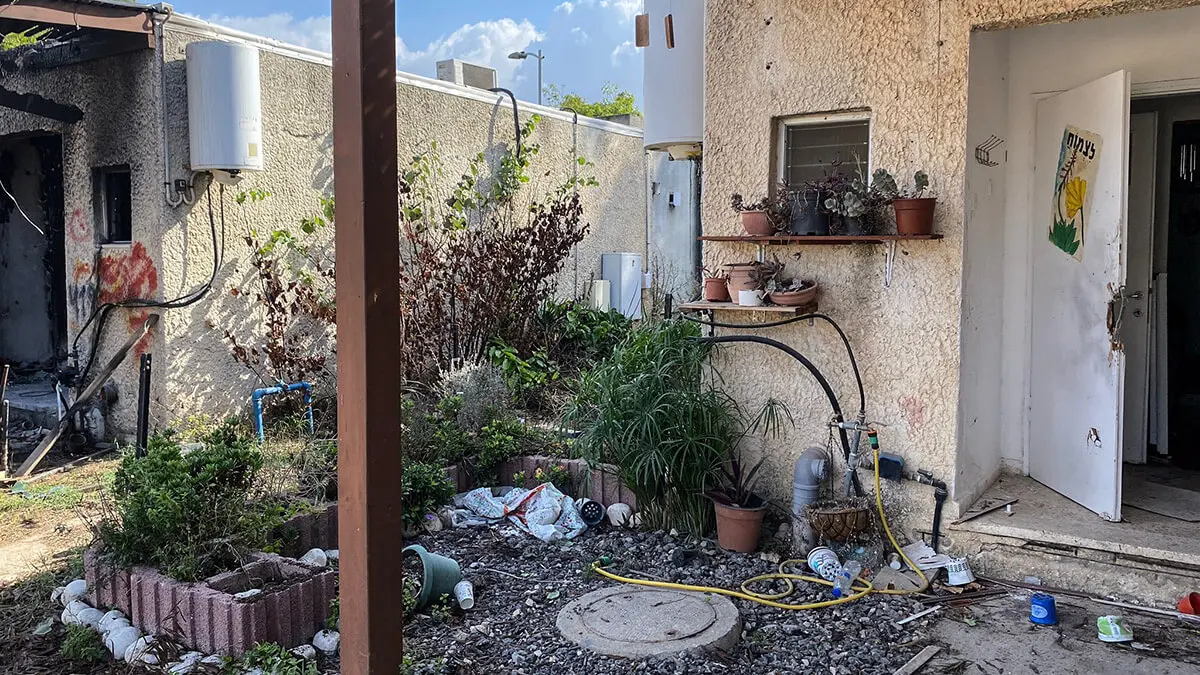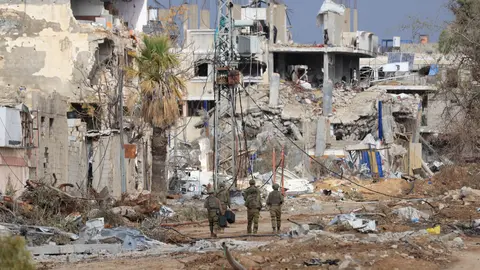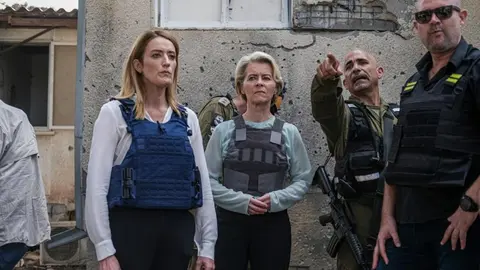Against rape, unless she is Jewish

It seems safe to predict that on International Women's Day (8 March) there will be no display of banners recalling the savage mass rape of Jewish women by Hamas terrorists who invaded two kibbutzim and an open-air music festival on 7 October. The usually loud feminist demonstrations that usually fill their demands with loud proclamations are stridently silent about one of the most tragic and brutal episodes suffered by humanity.
Some thirty international organisations, from the Geopolitical Observatory of Latin America to the European Network against Hate Crimes, as well as the Coordinating Committee against Misogyny and Machismo and the Platform against Anti-Semitism, have issued a public statement in which they express "their pain and enormous anger at the silence of feminists" in the face of the brutality of those acts. They stress that such silence on the part of supranational organisations such as United Nations Women or the Red Cross is "premeditated", which seems to show that, "far from defending the rights of all women, they have decided to remain silent and become selective feminists".
As memory is often weak and the pile-up of events contributes even more to blur it, it is worth refreshing it and recalling the testimonies presented at a session held at an event at the United Nations on 4 December. Katherine Rosman and Lisa Lerer gave a full account of that session in The New York Times with horrifying testimonies: "One woman's body had nails and various objects in her organs. In another house, a person's genitals were so mutilated, we couldn't identify whether it was a man or a woman". Simcha Greinman, a volunteer who helped collect the remains of the assault victims, added: "I saw horrifically horrible things with my own eyes and felt with my own hands.
Shari Mendes, a member of a unit tasked with preparing the burial of fallen soldiers, said that several of the women killed "were shot in the crotch, directly in the vagina or in the chest", while others had their faces mutilated or were shot in the head.
On 4 December, two months after the barbarity, United Nations Women had not issued any statement condemning it. Hamas itself denied having committed these atrocities, no doubt because admitting it would be tantamount to acknowledging that its fighters had flouted their own Islamic principles.
However, the evidence is numerous and compelling. Both in the open-air space where the music festival was being held and in the kibbutzim compounds that were raided, there were bodies of women found partially or completely naked, women with broken pelvic bones, or video testimonies of women in their statements to the police, in which they recounted how Hamas terrorists took turns raping a young woman they had captured, mutilating her and consummating her ordeal by shooting her in the head.
Meni Binyamin, the Israeli police's director of International Crimes Investigation, said he had documented "dozens of violent incidents of rape and the most extreme sexual abuse we have ever seen".
At that stormy session at the New York headquarters of the United Nations hundreds of protesters accused the UN of double standards when it comes to sexual violence, which they underlined with slogans such as "Me too, unless you're Jewish", an ironic allusion to feminism's "Me Too" slogan.
From that day in December until now, there has been a shift in the narrative, which attempts to relativise the gravity and drama of the 7 October massacre, alluding to the context of the situation of the Palestinian people, who are directly suffering the consequences of the war between Israel and Hamas. This amalgamation is absolutely inappropriate because it would be tantamount to legitimising the rape of women as a weapon of war, which has unfortunately been going on since the beginning of time. Just because it happens does not mean that we regard it as normal, it is not normal at all. The perpetrators of such acts cannot be legitimised in any way, in Gaza or anywhere else in the world.
It would therefore be highly desirable that the struggle of feminism should not be so partially biased as to completely ignore the fact that Jewish women, at least as much as Muslim, Christian or agnostic women, are also women. Violating them is a crime that can be condemned by the courts, but it must also be condemned by society as a whole, regardless of ethnicity, race or religion.



